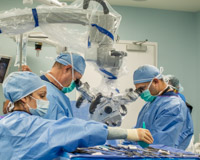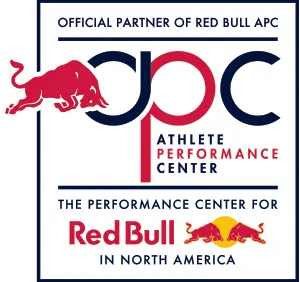By Sarah Sotoodeh
Neurological spine surgeon Dr. Amir Vokshoor founded the Institute of Neuro Innovation (INI) Foundation, a non-profit organization devoted to researching the brain and aging, with the aim to look at the world through the lens of neuroscience. This Saturday, November 9th, the INI Foundation has its fifth annual fundraiser, “Belief, Brain & Perspective.” I spoke to him about the foundation, the upcoming fundraiser, and why it’s important to him.
Q: Talk about the INI Foundation.
Dr. Vokshoor: Our motto is research, innovation, education. That means research into the next generation of neurologic technologies as well as good clinical research on anything from pain to memory loss to mood disorders, etc. We have some partners that we already worked with like Neurotopia and we look forward to designing some studies with them. We also have a couple of grants to image pain and to evaluate patients after spine surgery who require a certain amount of pain-relieving medication, etc. and to see if using brain optimization technology you see now in the form of video games, etc. can actually help them in a healthcare setting.
Q: Why is this cause important to you?
Dr. Vokshoor: My father died with Alzheimer’s disease. For the last three years before he died, I really tried to be objective and be a good neurologist, take notes on what he was missing in his neurological architecture. It’s actually relevant to the belief-making process because, unless your memory circuitry is making you believe your narrative, you’re at a constant state of fear and paranoia because your story doesn’t make sense to itself. You just see bits and pieces of it. I could see that fear in him five years before he was officially diagnosed. I thought it was senile paranoia or something like that. He had an immense amount of knowledge about Persian poetry, he could recite things that he had probably read in the ‘40s or ‘50s with no problem yet he couldn’t remember what he did yesterday— just the hallmarks of memory circuits unraveling. I started taking clinical notes and then after he passed, about a month later we had our initial launch party because, I said ‘you know what, we’re doing neurological surgery, the very forefront of medical technology is available to us yet we cannot help this huge population of patients that’s going to be affected in the coming years.’
From a selfish standpoint, I genetically could have some markers that put me at high risk of that kind of disease or dementia or cognitive dysfunction. I think the least I could do during my career is to be of service and create an organization that looks at the bold frontiers of neuroscience that not everyone is looking at, such as looking at the rhythmic map of the brain, looking at bringing alternative technologies that we know have worked on patients in the past, such as anything from art therapy to acupuncture therapy to other ways in which the nervous system can be modulated that allopathic medicine has not traditionally looked at, because they’ve not been able to scientifically measure it. With the advance of neuroimaging, we have now shown monks who meditate—their brain structure changes—these are solid neuro scientific discoveries that we now have the luxury of looking at. Also, the placebo effect—we now have neuro imaging ways of actually studying this phenomenon so we wanted to stay at the forefront and bring that to the public—not just educating them but actually change lives.
Q: Describe this Saturday’s Fundraiser, “Belief, Brain & Perspective.”
Dr. Vokshoor: It’s a little bit tech conference, an art party, and a fundraising party for non-profit. Every time we’ve had fundraisers, we’ve tried to celebrate something that the brain does either through its interaction with artistic beauty or its interaction in formation of memories. I think one of the most relevant subjects nowadays if you look at anything from our Congress to the new Pope, to the way the brain is changed by the new technologies that we have available like Google Glass, is how the brain creates belief. One of the neatest functions that our brain does is to make our truth seem very truthful to us so that’s what we want to celebrate. We are trying to say that belief is another function of memory and we’re a foundation that ultimately looks at the building blocks of consciousness as little bits of memories or memes so this is going to be an informative, yet informal way of interacting with that.
Q: What are you looking forward to most for the fundraiser?
Dr. Vokshoor: We have a keynotes speaker, Tom Schnabel from KCRW Rhythm Planet, who is a master in the world of music. He looks at the lens of anything through music because that’s how he’s defined himself. We have Anne Andrews, Professor of Neuroscience and Biochemistry at UCLA, who has done an immense amount of work on connecting neuroscience with nanotechnology. Lastly, I’m going to talk about where we’ve been, where we’re going, where we’d like to go and where we’d like to get our funds to concentrate on. Another thing we really want to do is to start an education campaign of neuroscience for the young—to be exposed to high levels of neuroscience and get them interested, such as at inner city schools or impoverished areas. I think the neurologic function of empathy is one of those things that we want to celebrate and bring to people’s attention, looking through the world the magical lens of neuroscience, bringing neuroscience and making it accessible to everyone.
Click here for more information on the INI Foundation or to RSVP for this Saturday’s Fundraiser at the Crescent Hotel.

About the author
discmdgroup DISC Sports & Spine Center (DISC) is a national leader in minimally invasive spine surgery, orthopedic surgery, and sports medicine care. Our spine surgeons set the standard in artificial disc replacement, spine fusion, discectomy, microdiscectomy and the full spectrum of spine procedures. The group’s orthopedic surgeons advance the state of joint preservation surgery and total joint replacement, including total knee replacement as well as total hip replacement. Our flagship surgery centers based in Newport Beach, Marina del Rey, and Carlsbad serve patients local to Los Angeles, Orange County and San Diego, as well as the rest of the country. Read more articles by discmdgroup.




